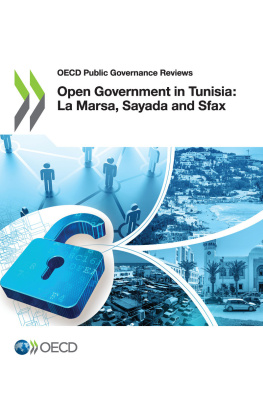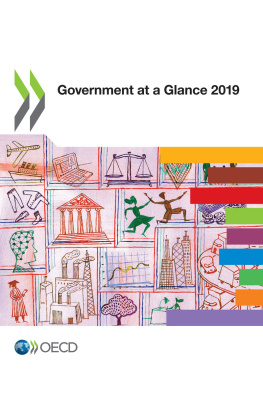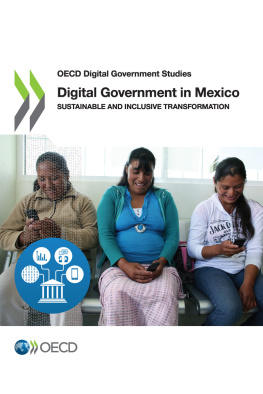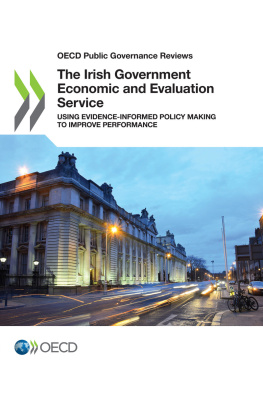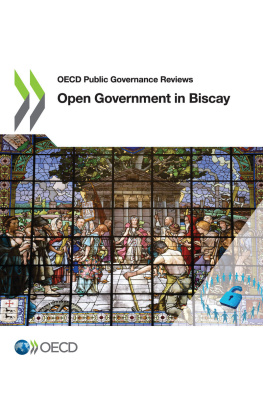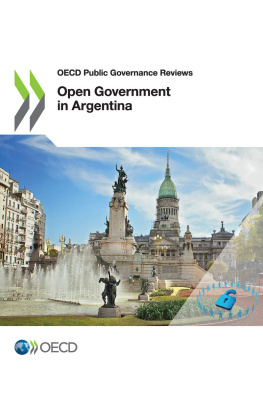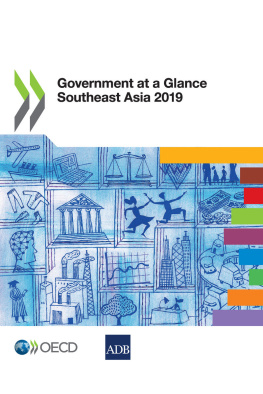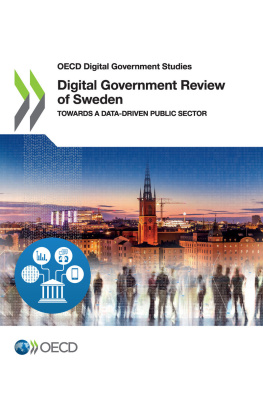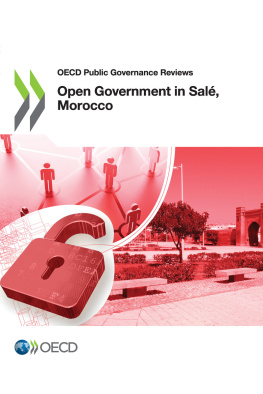OECD - Open Government in Tunisia: La Marsa, Sayada and Sfax
Here you can read online OECD - Open Government in Tunisia: La Marsa, Sayada and Sfax full text of the book (entire story) in english for free. Download pdf and epub, get meaning, cover and reviews about this ebook. year: 2019, publisher: OECD Publishing, genre: Politics. Description of the work, (preface) as well as reviews are available. Best literature library LitArk.com created for fans of good reading and offers a wide selection of genres:
Romance novel
Science fiction
Adventure
Detective
Science
History
Home and family
Prose
Art
Politics
Computer
Non-fiction
Religion
Business
Children
Humor
Choose a favorite category and find really read worthwhile books. Enjoy immersion in the world of imagination, feel the emotions of the characters or learn something new for yourself, make an fascinating discovery.
Open Government in Tunisia: La Marsa, Sayada and Sfax: summary, description and annotation
We offer to read an annotation, description, summary or preface (depends on what the author of the book "Open Government in Tunisia: La Marsa, Sayada and Sfax" wrote himself). If you haven't found the necessary information about the book — write in the comments, we will try to find it.
OECD: author's other books
Who wrote Open Government in Tunisia: La Marsa, Sayada and Sfax? Find out the surname, the name of the author of the book and a list of all author's works by series.
Open Government in Tunisia: La Marsa, Sayada and Sfax — read online for free the complete book (whole text) full work
Below is the text of the book, divided by pages. System saving the place of the last page read, allows you to conveniently read the book "Open Government in Tunisia: La Marsa, Sayada and Sfax" online for free, without having to search again every time where you left off. Put a bookmark, and you can go to the page where you finished reading at any time.
Font size:
Interval:
Bookmark:
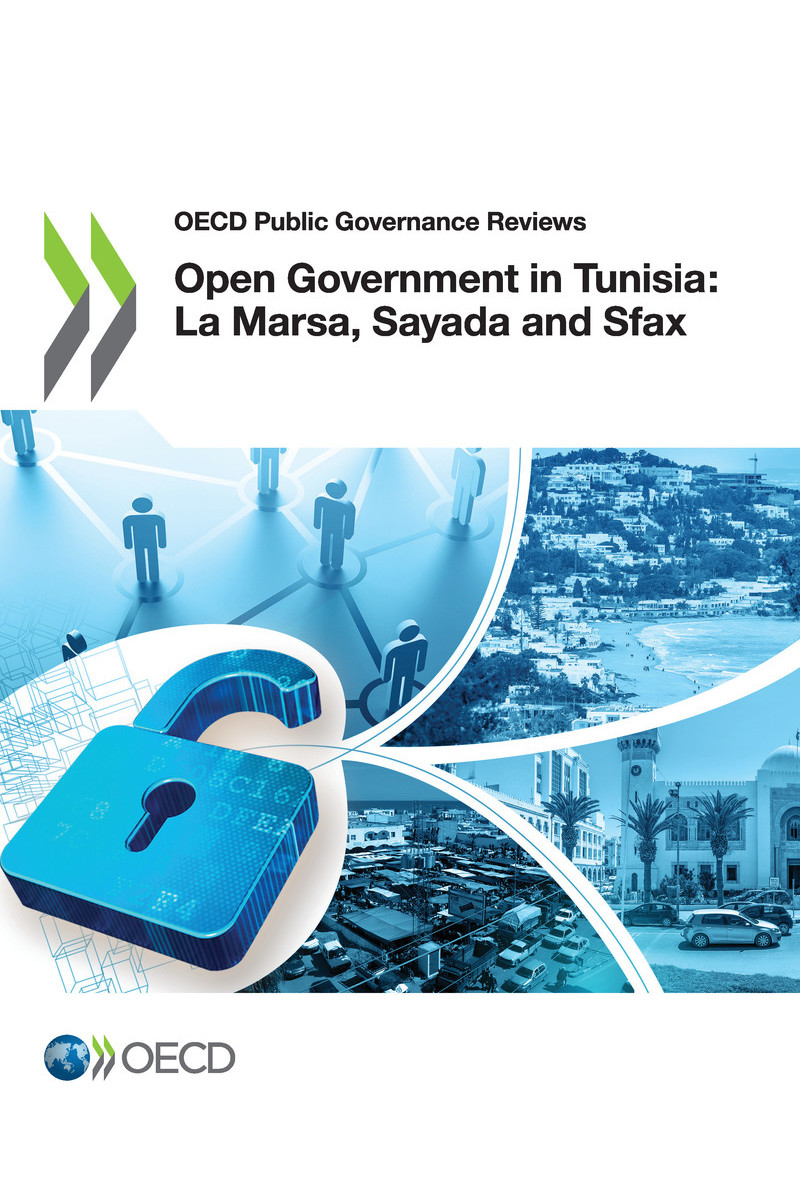
OECD (2019), Open Government in Tunisia: La Marsa, Sayada and Sfax , OECD Public Governance Reviews, OECD Publishing, Paris, https://doi.org/10.1787/9789264310995-en .
Since 2011, Tunisia has reformed its legal and policy frameworks to give greater autonomy to local government and promote open and inclusive government at both national and subnational levels. While the reforms give citizens a more active role in policy making, they also require profound changes to Tunisias governance culture, policies and practices. In this context, some Tunisian municipalities and citizens have already introduced innovative open government initiatives and created partnerships with civil society.
Taking stock of these experiences, this report analyses the legal and institutional frameworks for open government policies and practices at the local level based on three pilot municipalities, La Marsa, Sayada and Sfax. It assesses their frameworks and practices against best practices in OECD countries and with regard to the Recommendation of the OECD Council on Open Government. The report acknowledges the efforts undertaken by these three municipalities to transform their relationship with citizens and makes recommendations for taking a more comprehensive and structured approach to open government.
In addition, in the light of Tunisias ongoing transition and decentralisation process, it offers recommendations to the central government for creating adequate structures, resources and procedures for open government at the local level.
This report was prepared at the request of Tunisias central and local government authorities. It seeks to assist Tunisia in implementing Article 139 of the Constitution, which provides for participatory democracy and the principles of open government for local authorities.
The OECD, under its MENA-OECD Governance Programme, has been helping Tunisia develop and implement public policies that promote transparency, stakeholder participation, integrity and accountability since 2012.
It is hoped that the results of this work will inspire not only other Tunisian municipalities, but communities around the world to implement open government initiatives.
The OECD Secretariat wishes to express its gratitude to all those who made this report possible. First and foremost, thanks are due to the Government of Tunisia, in particular to the Presidency of the Government, the Ministry of Local Affairs and Environment and the municipalities of La Marsa, Sayada and Sfax, for their constant support during the various workshops and peer review missions for this project. The OECD would also like to extend its gratitude to all the other stakeholders from civil society and the private sector who took part in the peer review.
In addition, the OECD would like to thank the public officials who served as peer reviewers: Guy Grenier (Montreal, Canada), Frderic Benhaim (Paris/ Ile-de-France Region, France) and Paul-Henri Philips (Brussels Region, Belgium).
This report was prepared by the Directorate for Public Governance at the OECD, headed by Marcos Bonturi, as part of the MENA-OECD Governance Programme. It falls within the framework of the Open Government project, managed by the Governance Reviews and Partnerships Division, under the responsibility of Martin Forst. The report was produced under the strategic direction of Alessandro Bellantoni, head of the Open Government Unit. The peer review and drafting process was led by policy analyst Katharina Zuegel. The report was written by Katharina Zuegel, with support and contributions from Paqui Santonja, project co-ordinator and policy analyst. Caroline Rolland-Diamond provided editorial support and Roxana Glavanov was responsible for layout and proofreading. Administrative support was provided by Michelle Ortiz.
The report was developed in line with the mandate to promote open government reforms in the MENA region, received by the OECD within the context of the G7 Deauville Partnership with Arab Countries in Transition. The OECD wishes to thank the Middle East Partnership Initiative (MEPI) of the United States for its financial support.
Tunisia has been undergoing a period of transition and evolution of its political system since 2011, leading to reforms of its legal and policy frameworks. These reforms promote open government practices through increased transparency, participation and accountability. Tunisias membership in the Open Government Partnership is proof of this commitment. The 2014 Constitution, which enshrines the principles of a democratic, republican and participatory regime, as well as the principles of self-government ( libre administration ), participatory democracy and open governance for local authorities, offers an opportunity to implement open government practices at the local level. The ongoing decentralisation process is seen as going hand-in-hand with more open, participatory and accountable governance. Local authorities are therefore called upon to play a stronger role in local development by bringing public policies closer to citizens. This presents a challenge at a moment of transition and uncertainty in terms of legal and institutional frameworks and available resources. Yet, the role and legitimacy of local authorities have already increased since the local elections of 6 May 2018.
Font size:
Interval:
Bookmark:
Similar books «Open Government in Tunisia: La Marsa, Sayada and Sfax»
Look at similar books to Open Government in Tunisia: La Marsa, Sayada and Sfax. We have selected literature similar in name and meaning in the hope of providing readers with more options to find new, interesting, not yet read works.
Discussion, reviews of the book Open Government in Tunisia: La Marsa, Sayada and Sfax and just readers' own opinions. Leave your comments, write what you think about the work, its meaning or the main characters. Specify what exactly you liked and what you didn't like, and why you think so.

